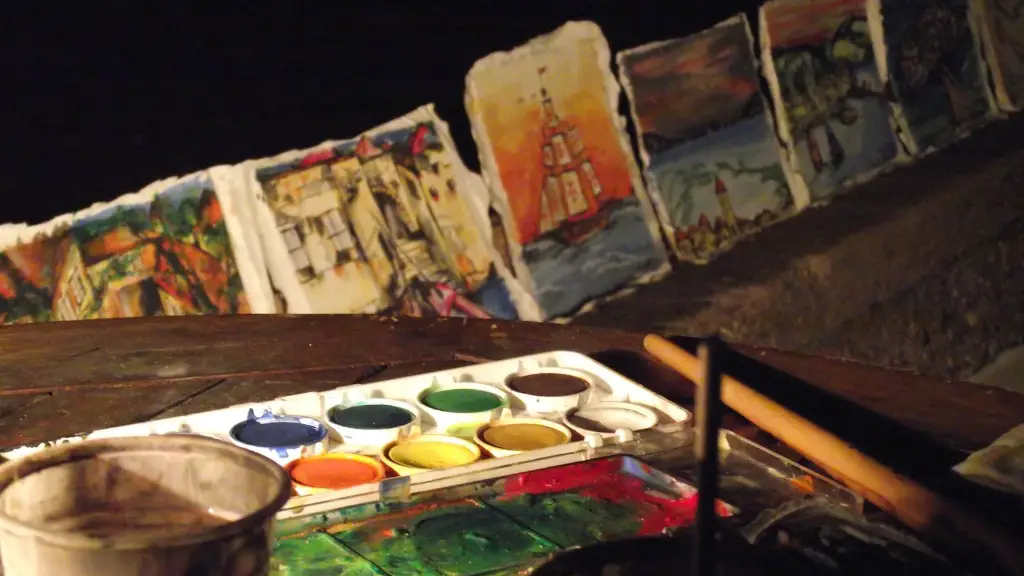Poetry is an ancient art form that has the power to reach the hearts of many people. It speaks to the soul and allows readers to explore their emotions and contemplate their existence. Despite the popularity of modern forms of entertainment, such as films, books, and video games, poetry has remained a source of inspiration and entertainment for readers and writers alike.
At its core, poetry is a form of expression that has been around for centuries. The written word has always been an essential tool for people to communicate their thoughts and feelings without necessarily being able to express them in spoken language. As such, it has come to be seen as an important form of communication and art.
In order to provide a place for the passion of poetry, there is the need for a safe space in which poets can express themselves and their lyricism. Whether in a digital or physical form, such a place would allow poets to come together and share their works. During the pandemic, it has become increasingly difficult to participate in physical events or meet in person, creating the perfect moment to explore digital platforms that provide a home for poem enthusiasts.
To bring poetry to life, public readings, open mics, and poetry slams are great ways to listen to poetry and hear it from the poets themselves. It is widely accepted that these types of encounters tend to provide an adequate and enriched platform for poets to talk about their works. Furthermore, writing workshops, lectures, and even online recitation circles provide poets the necessary skills to refine their works and voice their thoughts.
Many events are providing performance opportunities for poets, both online and in person, to reach an audience with their work and even to gain proficiency. During the pandemic, a vast selection of festivals, initiatives, and organizations have popped up to celebrate the written word, giving poets more options and flexibility to reach an audience.
In addition, a place for literature is another great way to foster a public discourse centered around poems and the poetic language they are composed in. Many libraries, book clubs and writing workshops provide the necessary resources, such as anthology and collections, to educate readers and strengthen their understanding of poetry and its importance.
The digital world has provided an unprecedented selection of opportunities in terms of market diversification and expansion. Many poets are now exploring digital platforms, such as magazines, blogs and websites, to provide a space to both express themselves and to reach an audience. Moreover, this same digitalization has made it easier to share content and discuss its merits with a larger audience than ever before.
Celebrating Poetry
Poetry is a form of pure expression and a celebration of its beauty. To commemorate poetic works, various awards and prizes provide poets the necessary recognition their works deserve. For example, promising poets typically have the opportunity to win prestigious awards and grants sponsored by renowned organizations and educational centers. This also gives poets the necessary financial stability to be able to focus more on their works, rather than worrying about their economic status.
Commemorating the best works of poetry, authors engaged in the lyrical artform can receive nominations for prestigious awards, such as the Pulitzer Prize in Poetry. This is a great way to recognize their contributions to the poetic language and provides an impetus to the potential success of their works. Other awards, such as the National Book Award in Poetry, further shine the spotlight on particularly outstanding works of poetry.
Poetic Involvement
The involvement in the art of poetry is not limited to the appreciation or performance of its works. In fact, many people are deeply involved in the industry as editors, resources and advocates. Editors are responsible for the editing, researching and selection of submissions. This is a crucial step in the industry that allows poets to gain more exposure to their works and provides a necessary platform to share their works.
Furthermore, the industry is heavily dependent on resources and advocates to help promote and facilitate the writing and sharing of poetic works. This includes literary organizations, libraries, magazines and sites that are deeply engaged in the poetry industry to help create virtual spaces and communities for poets.
As a permanent figurehead of a publication, an editor-in-chief is also a central figure in the world of poetry. He or she is responsible for making sure that the content of the magazine is of high quality and that the voices of promising poets are given the attention they deserve. This is a strenuous job and it is up to the editor-in-chief to make sure that the works of poets seeking publication are given the opportunity to shine.
Restablishing Connections
No matter where poets live, language and culture binds people together. Poetry, however, is a powerful tool to bridge divides, establish connections and allow people to learn from each other. Poetry readings, for example, are a great way for people to come together and engage in a meaningful dialogue about their poetic works.
Moreover, in order to provide a space to perform, poets and lyricists can participate in different events. There is a great number of both small and large poetry festivals and events, such as Austin Poetry Society or California Poetry Day, throughout the year that promote the craft with great enthusiasm. From both readers and writers perspectives, these poetry festivals give a great opportunity to listen to and experience the work of prominent poets.
Being involved in a poetry reading or festival is not only a great way to expose promising works, but also establish connections and exchange ideas between poets. This creates a great platform for the exchange of ideas and the building of lasting friendships and partnerships.
Cultivating a Positive Environment
In order to foster collaboration, creating a supportive environment is important. These communities provide a positive atmosphere for poets to share their work without fear of judgement and be heard. An encouraging environment, such as this, is essential to promote and push the boundaries of creativity and experimentation.
Readers typically appreciate any opportunity to view poetic works, however a positive space where poets feel safe in their vulnerability and openness is essential for advancing the industry. Furthermore, supportive poet communities can help create a stronger sense of unity and understanding between poets, readers and aspiring writers, resulting in a greater dialogue of creativity and collaboration.
The need for an adequate platform to showcase and listen to poets has become increasingly important. As an industry, poetry still faces stiff competition from other forms of entertainment, making it imperative that a place is provided for poets to express themselves. Whether it’s through physical events, theatrical performances, public readings, or the digital world, a space needs to be cultivated to bring together poets, readers and influencers of the poetic language.
Poetry in Schools
Although many are familiar with poetic works, it is often regarded as a language for the privileged few, making it oftentimes difficult for aspiring poets to find their places in the industry. To counter this, various initiatives have been established in order to make poetry more accessible to young people. Schools are a great place to start, as teachers and school personnel can provide the necessary resources and tools to help young people write and develop their poetic works.
The importance of teaching poetry in schools is often overlooked and undervalued, however, it is a great opportunity for kids to learn about an art form that is often over-simplified or misunderstood. It provides students with both language and creative writing skills, as well as a great tool to teach them the meaning of words and how to use them effectively.
Not only should poetry be taught in schools, but it should also be implemented in other aspects of the curriculum. For instance, the introduction of poetry in science classes could be a great tool to teach students the complexities of the subject matter in a fun and engaging way, while also providing them with a creative outlet to apply their knowledge.
Promoting the Art
Reading poetry is a great way to start understanding this historic art form and its complexities. Although buying books of poetry is essential for understanding its full power, there are many online platforms that make reading for free more accessible. Poetry apps such as Poetizer, Poem Hunter, and Spoken Verse provide a great source of material for readers and a platform for poets to share their work, allowing them to reach a larger audience.
Besides reading, one of the best ways to promote knowledge for poetry is to use the written word to encourage conversations. Having conversations about literary works provides a more intimate and enriched understanding amongst poets and readers. Additionally, it gives the opportunity for poets to share experiences while providing readers with a better understanding of the poet’s social and political views and the reasoning behind them.
Public recitation is another great opportunity to delve into the world of poetry. This practice is becoming increasingly popular as it helps poets familiarise themselves with the work of prominent authors, as well as their emotions and feelings. Furthermore, reciting out loud provides an added layer of understanding that helps to shape their work and further enhance its impact.
Conclusion of Poetry
The importance of poetry and its power to move the heart and soul of the listener is often overlooked and undervalued. With the proliferation of digital platforms and more acknowledgement from the industry, poets have more resources at their disposal than ever before. By providing poets a space to express their work, engage in meaningful dialogue and receive recognition for their work, a renewed attention can be given to the beauty of the poetic language.

